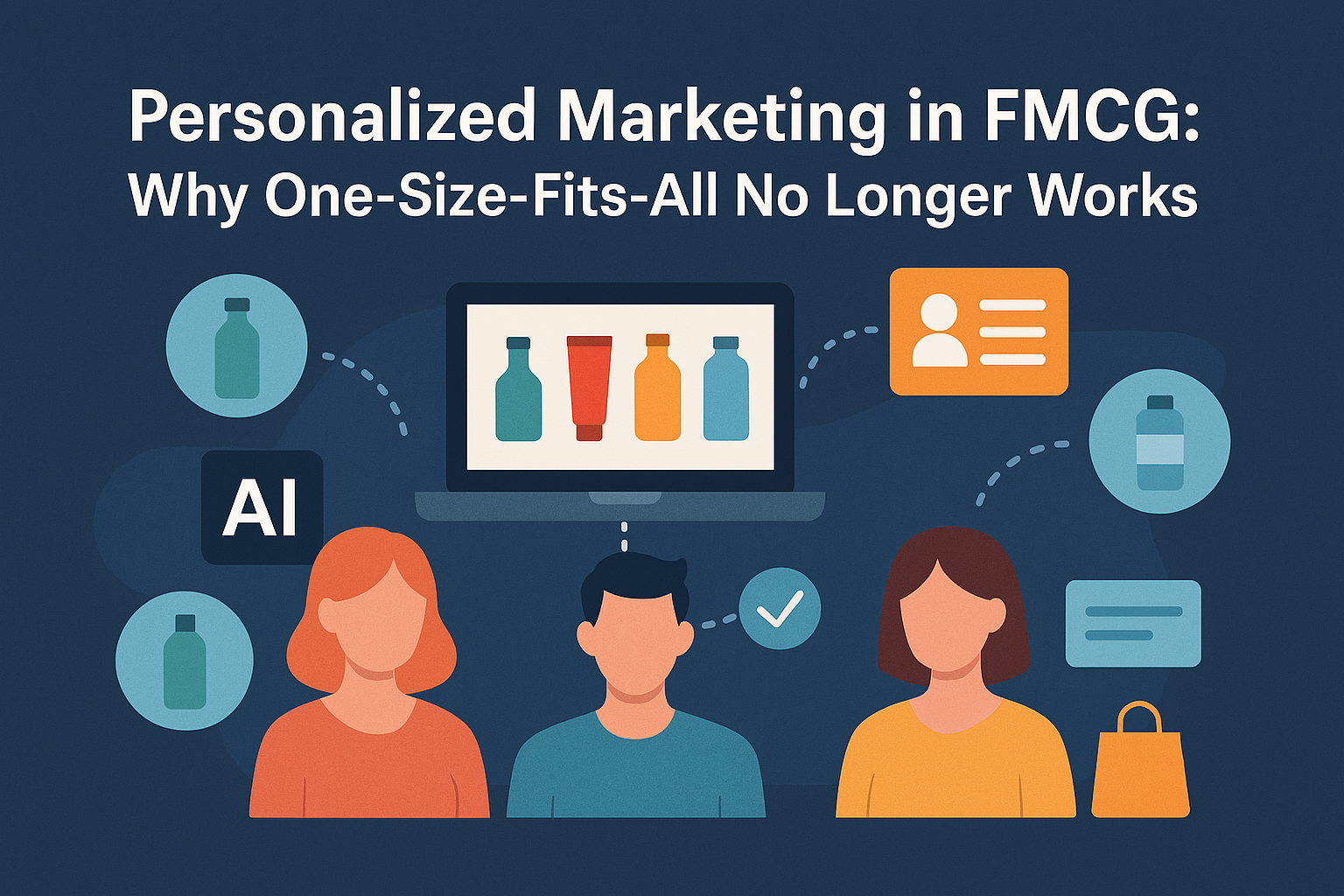
Personalized Marketing in FMCG: Why One-Size-Fits-All No Longer Works
Introduction
In an era where consumers are overwhelmed with choices and information, generic marketing strategies are losing their effectiveness. The FMCG (Fast-Moving Consumer Goods) industry, historically reliant on mass marketing, is undergoing a transformation—personalized marketing is taking center stage. With the rise of data analytics and AI, FMCG brands are discovering that tailoring messages to individual preferences isn’t just possible—it’s essential.
Why Mass Marketing Is Fading
Traditional mass marketing treated consumers as a homogenous group. Brands relied on demographics and general trends to design campaigns that targeted the “average” consumer. While this worked in the past, today’s digitally connected shoppers expect more. Consumers are now accustomed to personalized experiences in e-commerce, entertainment, and social media—and they expect the same from their favorite FMCG brands.
Personalization Builds Trust and Loyalty
Personalized marketing helps brands build authentic relationships with consumers. By using purchase history, behavioral data, and preferences, FMCG companies can create targeted offers and relevant product recommendations. This not only drives higher engagement but also fosters loyalty. When consumers feel understood, they’re more likely to trust the brand and stick with it.
Better Engagement = Better ROI
Studies consistently show that personalized campaigns generate better results than broad messaging. Personalized emails, for instance, can result in higher open rates and conversions. Similarly, personalized product recommendations can significantly increase basket size and repeat purchases. In the competitive FMCG landscape, these incremental gains can lead to substantial ROI improvements.
AI Makes Personalization Scalable
The game-changer in personalized marketing is artificial intelligence. AI can analyze massive datasets to uncover patterns, predict behavior, and suggest personalized content in real time. Tools like recommendation engines, predictive analytics, and customer segmentation models empower marketers to reach the right consumer with the right message at the right time—without manual effort.
Case in Point: Personalized Sampling Campaigns
Take product sampling as an example. Instead of sending random samples to a broad audience, AI-powered platforms like Samplify tailor sample distribution based on individual consumer preferences. A fitness enthusiast might receive a new protein bar, while a busy parent might get a healthy snack for kids. This targeted approach increases the likelihood of product trial success and follow-up purchases.
Overcoming the Challenges
Despite its benefits, personalized marketing does come with challenges. Data privacy is a key concern—consumers must trust that their information is being used responsibly. FMCG brands must invest in secure data handling practices and clearly communicate their privacy policies. Another challenge is data quality; ensuring accurate and up-to-date consumer information is essential for effective personalization.
The Future of FMCG Marketing
As personalization technologies become more sophisticated and accessible, we’ll see deeper integration of AI, machine learning, and customer data platforms in FMCG marketing strategies. Voice and visual search, hyper-local targeting, and emotional AI are just a few innovations on the horizon.
Conclusion
One-size-fits-all marketing is no longer effective in the FMCG world. Consumers expect personalization, and brands that fail to deliver risk falling behind. With the power of AI and data-driven insights, FMCG marketers can craft personalized experiences that not only meet consumer expectations but exceed them—leading to stronger relationships, increased loyalty, and long-term success.